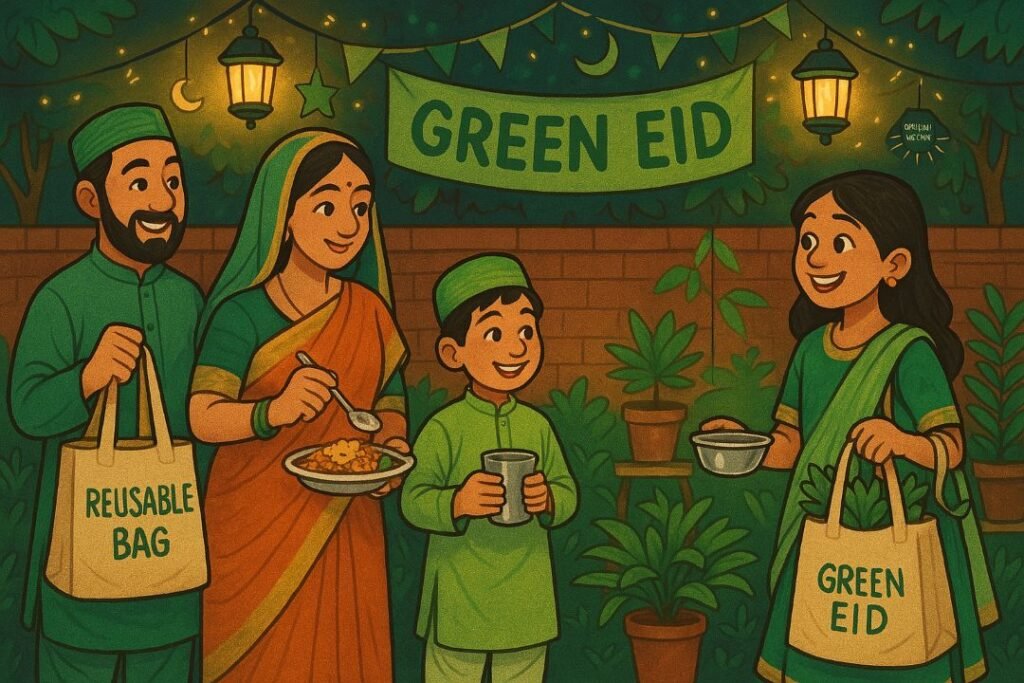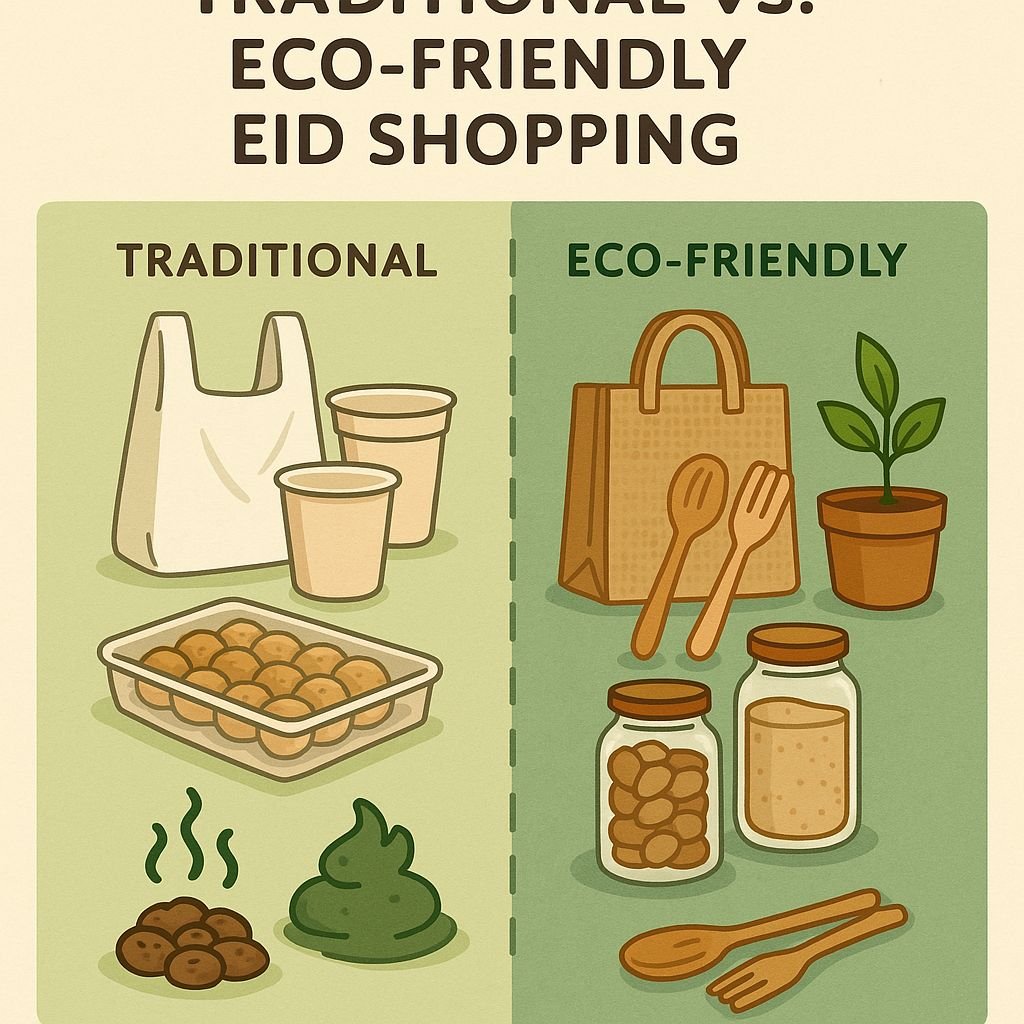
Introduction: Connecting Eid’s Values to Environmental Care
Eid-ul-Fitr is a time of joy, gratitude, and charity—a celebration marking the end of Ramadan with feasts, family gatherings, and acts of kindness. However, large-scale celebrations often lead to increased waste, energy consumption, and pollution. Let’s observed Ecofriendly Eid-ul-Fitr.
This Eid, let’s align our festivities with sustainability by adopting eco-friendly practices. By reducing waste, conserving resources, and making mindful choices, we can honor the spirit of Eid while protecting our planet.
The Environmental Impact of Eid-ul-Fitr Celebrations
Eid brings immense happiness but also significant environmental challenges. Here are some key concerns backed by data:
1. Plastic & Packaging Waste Surge
- Bangladesh generates over 3,000 tons of plastic waste daily (Department of Environment, Bangladesh), with a sharp increase during Eid.
- Globally, 40% of plastic is single-use (UNEP), and festivals like Eid contribute heavily.
2. Food Waste: A Growing Concern
- 1.3 billion tons of food is wasted globally each year (FAO), with festive occasions like Eid playing a role.
- In Bangladesh, excess Eid food often ends up in landfills, producing methane (World Bank).
3. Energy & Water Overconsumption
- 20-30% spike in household energy use occurs during Eid in urban areas (Bangladesh Power Development Board).
4. Textile Waste from New Clothes
- Fast fashion contributes to 10% of global carbon emissions (UNEP).
- In Bangladesh, 500,000+ tons of textile waste are generated annually, with Eid shopping being a major factor.
Ecofriendly Eid-ul-Fitr: Practical Tips for a Sustainable Celebration
1. Reduce Plastic Use During Shopping & Feasts
| Traditional Practice | Eco-Friendly Alternative |
|---|---|
| Plastic shopping bags | Reusable jute or cloth bags |
| Disposable plates/cups | Bamboo, steel, or biodegradable utensils |
| Plastic gift wraps | Recycled paper or fabric wraps |
| Single-use water bottles | Glass or reusable bottles |

Pro Tip: Support local markets that use biodegradable packaging—encourage vendors to go plastic-free!
2. Minimize Food Waste Thoughtfully
- Plan meals wisely—estimate portions to avoid excess.
- Store & share leftovers—donate through NGOs like Food for All Bangladesh or Bidyanondo Foundation.
- Compost organic waste—turn fruit peels and vegetable scraps into garden compost.
3. Sustainable Fashion Choices
- Buy from ethical brands—opt for organic cotton or recycled fabrics.
- Upcycle old clothes—repurpose last year’s Eid outfits or donate to charities.
- Support local artisans—handmade, durable clothing reduces carbon footprint.
4. Energy & Water Conservation
- Use LED lights for decorations—they consume 75% less energy than traditional bulbs (World Bank).
- Limit water wastage—turn off taps properly during wudu and reuse water for plants if possible.
Success Stories: Communities Leading Eco-friendly Eid-ul-Fitr Initiatives
1. EcoFriendly Mosques in Bangladesh
- Several mosques have adopted solar panels and waste segregation systems to reduce environmental impact during Eid prayers.
- Dharmarajika Buddhist Temple (Dhaka) runs a plastic-free Eid market campaign.
2. Zero-Waste Eid Campaigns
- Save the Environment Movement promotes plastic-free shopping and awareness drives.
- Waste Concern Bangladesh organizes recycling initiatives post-Eid.
3. Global Green Eid Movements
- Dubai’s “Green Eid” encourages recycling and reduced plastic use.
- Indonesia’s eco-Ramadan programs include community composting and food waste reduction.
Conclusion: Celebrate Ecofriendly Eid-ul-Fitr
Eid-ul-Fitr is a celebration of gratitude and compassion—extending that care to our planet makes the festival even more meaningful. By adopting small changes, we can reduce waste, conserve resources, and inspire others to join the movement.
By celebrating sustainably, we ensure that future generations can enjoy Eid in a cleaner, healthier world. Eid Mubarak—let’s make it green! 🌱✨
To Know Ecofriendly Agriculture, Click here